


Washing machines are one of the most important appliances in our homes, making our lives easier by taking care of our laundry needs. However, have you ever wondered what goes on inside your washing machine? Does it contain magnets? In this article, we will explore the inner workings of washing machines and find out if magnets play a role in the cleaning process.
When you load your clothes into the washing machine and start the cycle, several components work together to clean your laundry effectively. These components include the drum, agitator, water inlet valve, and motor. But where do magnets come into play?
While many household appliances do contain magnets, washing machines typically do not. Instead, they rely on other mechanisms and technologies to clean your clothes. The drum, for example, spins at high speeds to create a tumbling motion that helps to dislodge dirt and stains. Water, detergent, and the mechanical action of the drum work together to remove dirt from your clothes.
Although magnets are not a primary component of washing machines, they do play a role in some specific models. Some washing machines use magnets in their motors, which can help improve the efficiency and overall performance of the appliance.
In conclusion, while washing machines do not typically contain magnets as a central component, they do use other mechanisms to clean your clothes effectively. Understanding the inner workings of your laundry appliance can give you a better appreciation for the technology that makes our lives more convenient.
The Importance of Magnets in Washing Machines
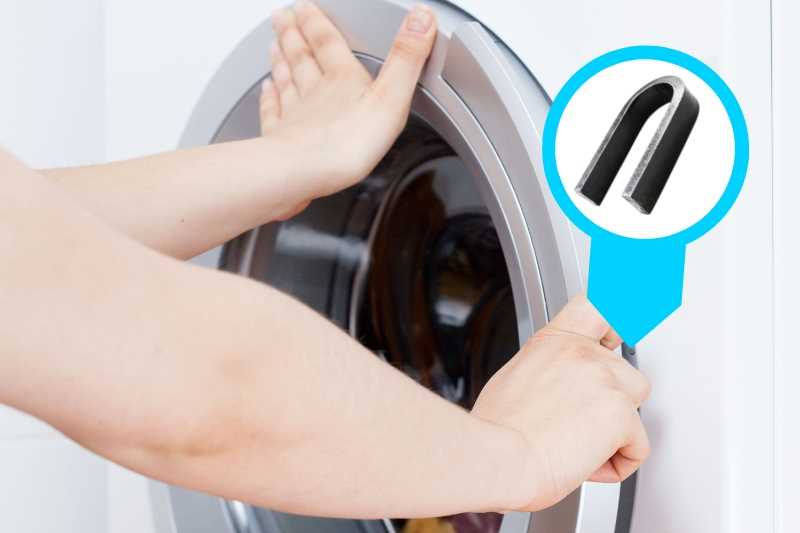
When you think of washing machines, magnets might not be the first thing that comes to mind. However, magnets play a crucial role in the inner workings of these essential household appliances. Let’s explore the importance of magnets in washing machines.
Magnetic Motor
One of the primary uses of magnets in washing machines is in the motor. The motor is responsible for powering the drum and agitator, allowing the machine to wash and spin clothes effectively. Magnets are used to create a rotating magnetic field in the motor, which then produces the necessary torque to drive the movement of the drum.
Door Closure
Another important use of magnets in washing machines is for door closure. In many modern washing machines, magnets are embedded in the door and the body of the machine. When the door is closed, the magnets create a strong magnetic force that holds the door tightly shut, preventing any water leakage during the washing cycle.
Water Level Sensors
Magnets are also used in water level sensors in washing machines. These sensors determine the appropriate water level for each load of laundry. Magnets are positioned at different heights within the machine, and the water level sensor detects the distance between the magnets and the water surface. Based on this information, the washing machine adjusts the water level accordingly.
Detergent Dispenser
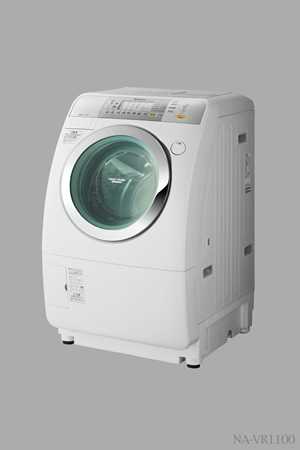
In some washing machines, magnets are used in the detergent dispenser compartment. These magnets can help to improve the distribution of detergent and ensure that it is properly dissolved in the water. The magnetic force helps to break up clumps of detergent and disperse it evenly throughout the wash, resulting in cleaner and more efficient cleaning.
Noise Reduction
Finally, magnets are also used in washing machines for noise reduction. By placing magnets strategically in the machine, manufacturers can reduce the vibration and noise produced during operation. This allows for quieter and more peaceful laundry experiences.
In conclusion, magnets play a crucial role in the inner workings of washing machines. From powering the motor to ensuring proper water levels and detergent distribution, magnets are essential for efficient and effective laundry. So the next time you use your washing machine, remember the importance of magnets in making your laundry experience smooth and hassle-free.
Understanding the Role of Magnets in Cleaning Your Clothes
Washing machines are complex appliances that use various mechanisms to clean your clothes. One of the key components in this process is magnets. Magnets play an important role in several aspects of the cleaning cycle to ensure the best results.
1. Agitation and Movement
Magnets are used in washing machines to generate the necessary agitation and movement of the water and clothes. The drum of the washing machine contains magnets, which create a magnetic field. This field interacts with the electromagnetic field produced by the motor, causing the drum to spin and create the necessary motion for cleaning.
2. Separation of Dirt and Stains
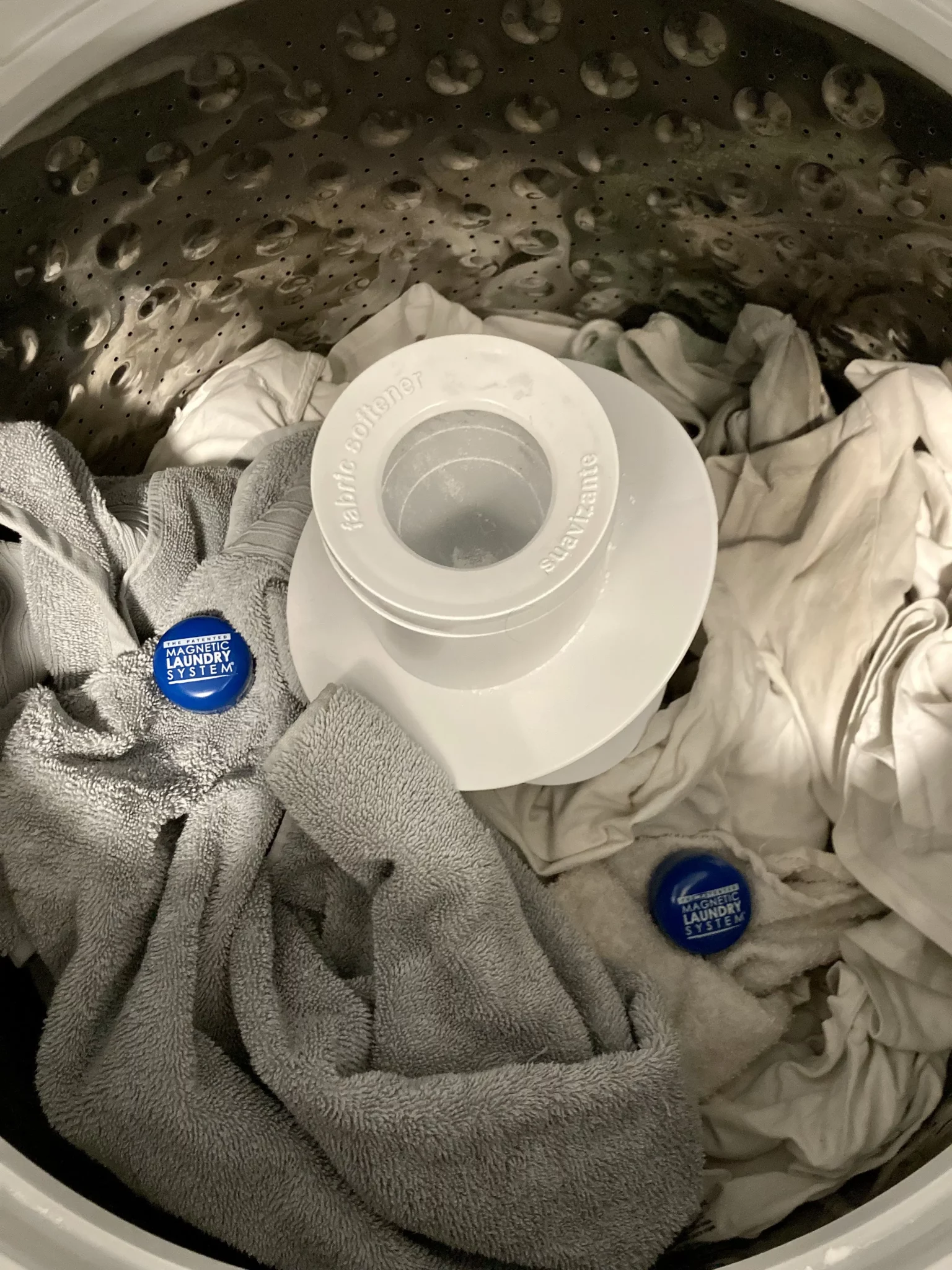
Magnets also help in the separation of dirt and stains from your clothes. The water in the washing machine is mixed with detergent, which contains surfactants. These surfactants have both hydrophilic and hydrophobic parts, making them effective at attracting and trapping dirt and stains. The magnets in the washing machine help to enhance this process by attracting and holding onto the surfactants, allowing them to work more efficiently in removing dirt and stains from your clothes.
3. Filtration
Many modern washing machines also have magnetic filters in the water inlet. These filters use magnets to attract and trap any metallic particles or debris present in the water. This helps to prevent these particles from entering the washing machine and potentially causing damage to the appliance or staining your clothes.
4. Energy Efficiency
Magnets can also contribute to the energy efficiency of washing machines. By using magnets in various components, such as the motor and drum, washing machines can reduce friction and increase the efficiency of the appliance. This results in lower energy consumption, helping to save both money and the environment.
5. Noise Reduction
Magnets can also be used in washing machines to reduce noise. By incorporating magnets into specific components, such as the motor or suspension system, washing machines can minimize vibrations and reduce the overall noise generated during operation.
In conclusion, magnets play a crucial role in the functioning of washing machines. From generating motion and agitation to enhancing the separation of dirt and stains, magnets contribute to the overall effectiveness and efficiency of the cleaning process. They also help with filtration, energy efficiency, and noise reduction, making washing machines a reliable and convenient appliance for cleaning your clothes.
How Magnets Help with Agitation and Rotation
When it comes to washing machines, magnets play a crucial role in the process of agitation and rotation. These two actions are essential for effectively washing your clothes. Let’s take a closer look at how magnets contribute to these functions.
1. Agitation
Agitation is the process of moving the clothes around in the washing machine to ensure proper cleaning. Magnets are used to create a magnetic field inside the drum of the washing machine. This magnetic field helps in creating a gradual back and forth motion of the drum, causing the clothes to rub against each other. This rubbing action helps to dislodge the dirt and stains from the fabric effectively.
The magnets are strategically placed around the drum, and when an electric current is passed through them, they generate a magnetic field. The interaction between the magnetic field and the magnets creates the necessary force for agitation.
2. Rotation
Rotation is the action that allows the drum of the washing machine to spin. Magnets also play a crucial role in this aspect. The motor in the washing machine is equipped with a rotor that contains permanent magnets. When an electric current is applied to the stator winding, it creates a rotating magnetic field that interacts with the magnets on the rotor. This interaction causes the rotor and drum to rotate.
- The rotation of the drum helps to evenly distribute the water and detergent, ensuring that all the clothes are washed thoroughly.
- It also helps to remove excess water during the spin cycle, reducing the drying time required for the clothes.
- The controlled rotation speed also prevents the clothes from getting tangled and reduces the chances of damage to delicate fabrics.
In conclusion, magnets are critical components that enable the proper functioning of washing machines. They help in both agitation and rotation, ensuring effective cleaning and efficient water removal. Without magnets, the washing machine would not be able to perform its primary functions, making them an essential part of the inner workings of your laundry appliance.
The Role of Magnets in Spinning Out Excess Water
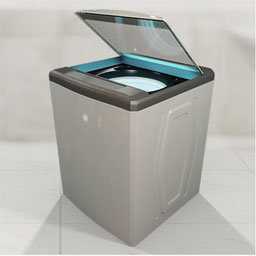
Magnets play an important role in the spinning process of washing machines, specifically in spinning out excess water from the clothes. This process is known as the spin cycle and is a crucial step in the laundry process.
During the spin cycle, the drum of the washing machine rotates at a high speed to force the water out of the clothes. To achieve this, magnets are utilized in conjunction with the motor and other mechanical components of the washing machine.
How do magnets aid in spinning out excess water?
Magnets are incorporated into the design of the washing machine to provide stability and balance during the spinning process. They help to keep the drum in position while it rotates at high speeds. This prevents excessive vibrations and ensures an efficient spinning out of water.
Additionally, magnets are used in the braking system of the washing machine. After the spinning process is completed, the magnets create a magnetic field that slows down and stops the drum from spinning. This helps to prevent the clothes from becoming entangled and ensures that the water has been sufficiently removed from them.
What types of magnets are used in washing machines?
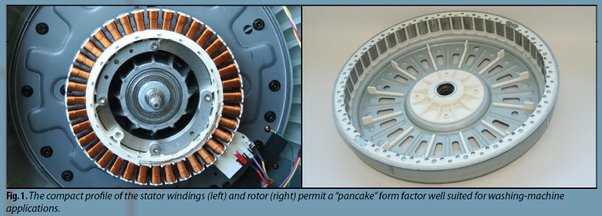
The magnets used in washing machines are typically made from a type of magnet called a neodymium magnet. Neodymium magnets are known for their strong magnetic field and are commonly used in various applications, including washing machines. These magnets are usually positioned strategically to ensure maximum stability and efficiency during the spinning process.
The benefits of using magnets in washing machines
Using magnets in washing machines offers several benefits. Firstly, they help to reduce vibrations and ensure a smooth spinning process, which in turn extends the lifespan of the washing machine. Additionally, the use of magnets in the braking system prevents damage to the clothes and allows for efficient water removal.
Furthermore, incorporating magnets in washing machines reduces the noise produced during the spinning process. By providing stability and balance, magnets minimize the vibrations that can cause noise, resulting in a quieter and more pleasant laundry experience.
In conclusion
The role of magnets in spinning out excess water in washing machines is crucial. They provide stability, balance, and an efficient spinning process, ensuring that clothes are properly cleaned and excess water is removed. The use of magnets in washing machines offers numerous benefits, including extended lifespan, reduced noise, and improved washing performance.
Exploring the Benefits of Magnetized Water in Washing Machines
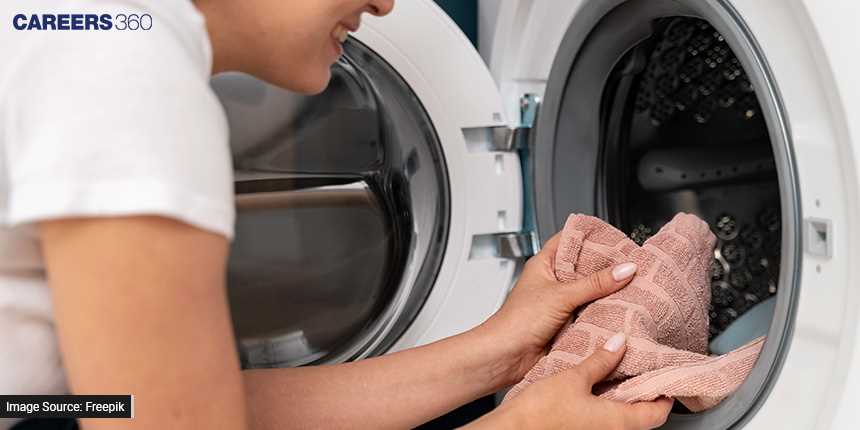
Washing machines are essential appliances in every household, as they help keep our clothes clean and fresh. But have you ever wondered if there are ways to enhance their performance? One potential solution is the use of magnetized water.
What is Magnetized Water?

Magnetized water, also known as “magnetic water,” is water that has been exposed to a magnetic field. This exposure is said to alter the water’s physical properties, making it more efficient in various applications, including washing machines.
When water passes through a magnetic field, its molecules are oriented in such a way that it becomes “magnetized.” This magnetization is believed to have several benefits when used in washing machines.
The Benefits of Magnetized Water in Washing Machines
1. Increased Cleaning Power: Magnetized water is said to enhance the cleaning power of washing machines. The magnetic properties of the water help break down and remove dirt, stains, and odors more effectively.
2. Reduced Detergent Usage: By using magnetized water, you may be able to reduce the amount of detergent needed for each cycle. The improved cleaning power of magnetized water means that less detergent is required to achieve the same level of cleanliness.
3. Softening Effect: Magnetized water is believed to have a softening effect on fabrics. This can result in softer, more comfortable clothes after washing.
4. Energy Efficiency: Using magnetized water in washing machines may also contribute to energy efficiency. The enhanced cleaning power of magnetized water means that washing cycles can be shorter, resulting in lower energy consumption.
How to Magnetize Water for Washing Machines
To magnetize water for use in washing machines, special magnets can be attached to the water supply line. These magnets create a magnetic field that the water passes through before entering the washing machine.
It’s important to note that the effectiveness of magnetized water in washing machines is still a topic of debate. While some studies and anecdotal evidence suggest benefits, other research has found no significant difference when compared to regular water.
If you’re considering using magnetized water in your washing machine, it’s essential to consult the manufacturer’s guidelines and conduct additional research to ensure compatibility and effectiveness.
Conclusion
Magnetized water is an intriguing concept that has potential benefits for washing machines. While the science behind its effectiveness is still not fully understood, some users claim to have experienced improved cleaning power and energy efficiency. If you’re interested in exploring this option, make sure to gather more information and consult the manufacturer’s guidelines before making any modifications to your washing machine.
FAQ
Do washing machines use magnets?
Yes, washing machines do use magnets in their inner workings. They are used in various components of the appliance to enhance its functionality.
What are the magnets used for in washing machines?
Magnets are used in washing machines for a few different purposes. One common use is in the motor of the machine, where they are used to generate the necessary rotational force to agitate the clothes. They are also used in the door latch mechanism to ensure that the door stays securely closed during the wash cycle.
How do magnets work in washing machines?
In washing machines, magnets work by creating a magnetic field that interacts with other components of the machine. In the motor, the magnets create a force that causes the motor to spin, which in turn rotates the agitator or drum. In the door latch mechanism, the magnets help to create a strong seal that keeps the door closed tightly during the wash cycle.
Are there any benefits to using magnets in washing machines?
Yes, there are several benefits to using magnets in washing machines. One of the main benefits is that they help to create a more efficient and powerful motor, which can lead to better cleaning results. Magnets can also improve the durability and longevity of the machine, as they reduce the wear and tear on certain components.
Can magnets in washing machines be harmful?
No, magnets in washing machines are not harmful. They are designed to be safely contained within the machine and do not pose any risk to users. However, it is always important to exercise caution when handling any electrical appliance, including washing machines.
What are the main components of a washing machine?
A washing machine consists of several main components, including a drum, an agitator or impeller, a motor, a pump, a control panel, and various sensors and valves. These components work together to clean and rinse your clothes.
How does a washing machine clean clothes?
A washing machine cleans clothes by filling the drum with water and detergent, agitating the clothes to remove dirt and stains, and then rinsing them with clean water. The agitator or impeller helps to move the clothes around in the water, ensuring that they are thoroughly cleaned.












